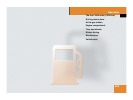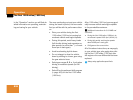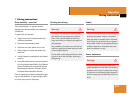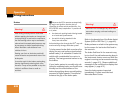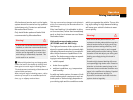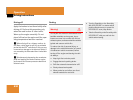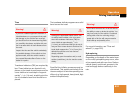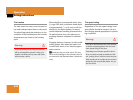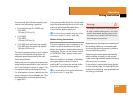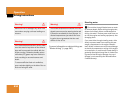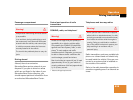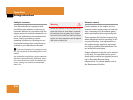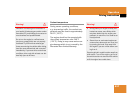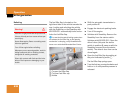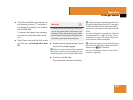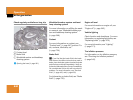
533
Operation
Driving instructions
An electronic speed limiter prevents your
vehicle from exceeding a speed of
ț All models except S 63 AMG and
S65AMG:
130 mph (210 km/h)
ț S 63 AMG:
S 65 AMG:
155 mph (250 km/h)
ț S 63 AMG with increased top speed*:
S 65 AMG with increased top speed*:
186 mph (300 km/h)
The factory equipped tires on your vehicle
may have a tire speed rating above the
maximum speed permitted by the elec-
tronic speed limiter.
Make sure your tires have the required tire
speed rating as specified for your vehicle in
the “Technical data” section (
୴ page 718),
for example when purchasing new tires.
For information on how to identify the tire
speed rating on a tire’s sidewall, see “Tire
size designation, load and speed rating”
(
୴ page 568).
If you are uncertain about the correct read-
ing of the information given on a tire’s side-
wall, any authorized Mercedes-Benz
Center will be glad to assist you.
Winter driving instructions
The most important rule for slippery or icy
roads is to drive sensibly and to avoid
abrupt acceleration, braking and steering
maneuvers. Do not use the cruise control
or DISTRONIC Plus* system under such
conditions.
When the vehicle is in danger of skidding,
move gear selector lever to neutral
position N. Try to keep the vehicle under
control by corrective steering action.
Road salts and chemicals can adversely af-
fect braking efficiency. Increased pedal
force may become necessary to produce
the normal braking effect.
Depressing the brake pedal periodically
when traveling at length on salt-strewn
roads can bring road-salt impaired braking
efficiency back to normal.
If the vehicle is parked after being driven
on salt-treated roads, the braking efficien-
cy should be tested as soon as possible af-
ter driving is resumed.
i
For information on speed ratings for winter
tires, see (
୴ page 571) and (୴ page 580).
i
For information on driving with snow chains,
see “Snow chains” (
୴ page 581).
Warning! G
On slippery road surfaces, never downshift
in order to obtain braking action. This could
result in drive wheel slip and reduced vehi-
cle control. Your vehicle’s ABS will not pre-
vent this type of control loss.



